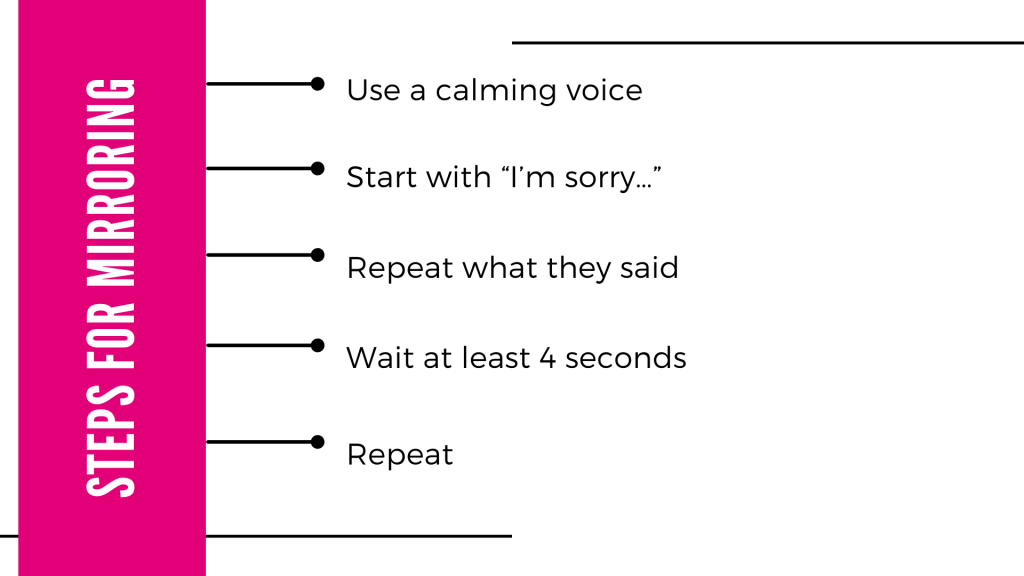PART 2: Mirroring
In the previous blog we talked about HOW to say it, in any negotiation, Now we move on to: WHAT YOU SAY.
First, we are going to talk about MIRRORING. Basically it is just repackaging your counterpart’s words and giving them back. With these tactics you are convincing your counterpart to move in a certain direction by his own words, not your own, and creating an illusion that your counterpart is in control.
Mirroring is very science and nature based. We copy each other to comfort each other. When we mirror one another means that we like what we are agreeing to what the other person is saying.

It can be done with speech patterns, body language, vocabulary, tempo and tone of voice. It’s generally an unconscious behavior, but it’s a sign that people are bonding and establishing trust. It’s based on a very basic biological principle: We fear what’s different and are drawn to what’s similar.
Additionally, you can build trust by repeating your counterpart’s words. When you repeat what people say, it makes the counterpart elaborate and the bonding begins.
Here are simple steps to achieve negotiation with just mirroring:

Here’s an example.
Let’s say its Friday 16.00 o’clock and you are ready to finish your work, and all of the sudden your supervisor comes into your office and gives you another task to prepare a social media plan for your client, even though they haven’t sent their creative brief about the campaign. Not only that this task would take up your entire weekend to prepare, it is also pointless since you have no instructions from the client. You can easily avoid this by just using mirroring.
Supervisor: “Create a social media plan for our client until Monday.”
Stay calm and mirror his words: “I’m sorry, are you saying that the client asked for a social media plan?” Don’t forget to pause for at least 4 seconds for your supervisor to think about your words and further explain his instructions.
Supervisor: “No, they haven’t yet.”
Again, mirror: “They haven’t yet?” This will make him want to explain himself even more.
Supervisor: “Well, I want to see what options we could prepare for them.”
This is your chance to politely explain why doing this task is pointless, without insulting him: “I’m sorry, so you are saying that you want me to prepare a social media plan for our client without instructions, since they haven’t yet sent their creative brief?”
At this point your supervisor should realize, that delegating this task is indeed not needed and will propose a solution: “You know what, forget about it, we will do it when they send the brief.”
And just like that, with a bit of mirroring and patience, you have the weekend free. With mirroring you made sure your supervisor solved his own problem, without suspecting you’re in control. So, make sure you use mirroring in any situation where you need to take the control back without causing a conflict.




